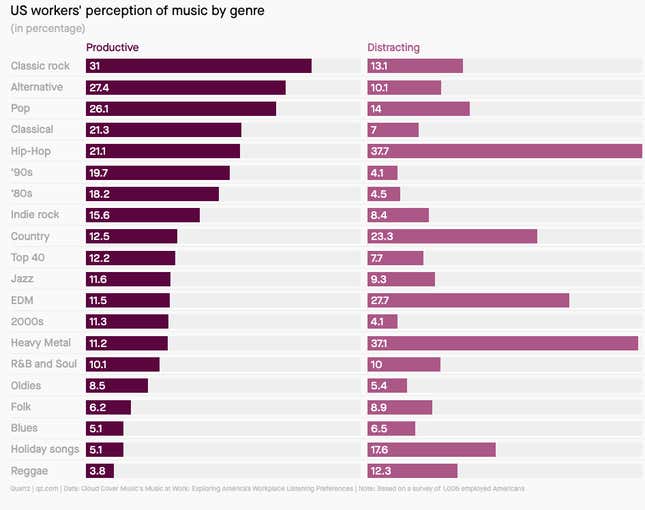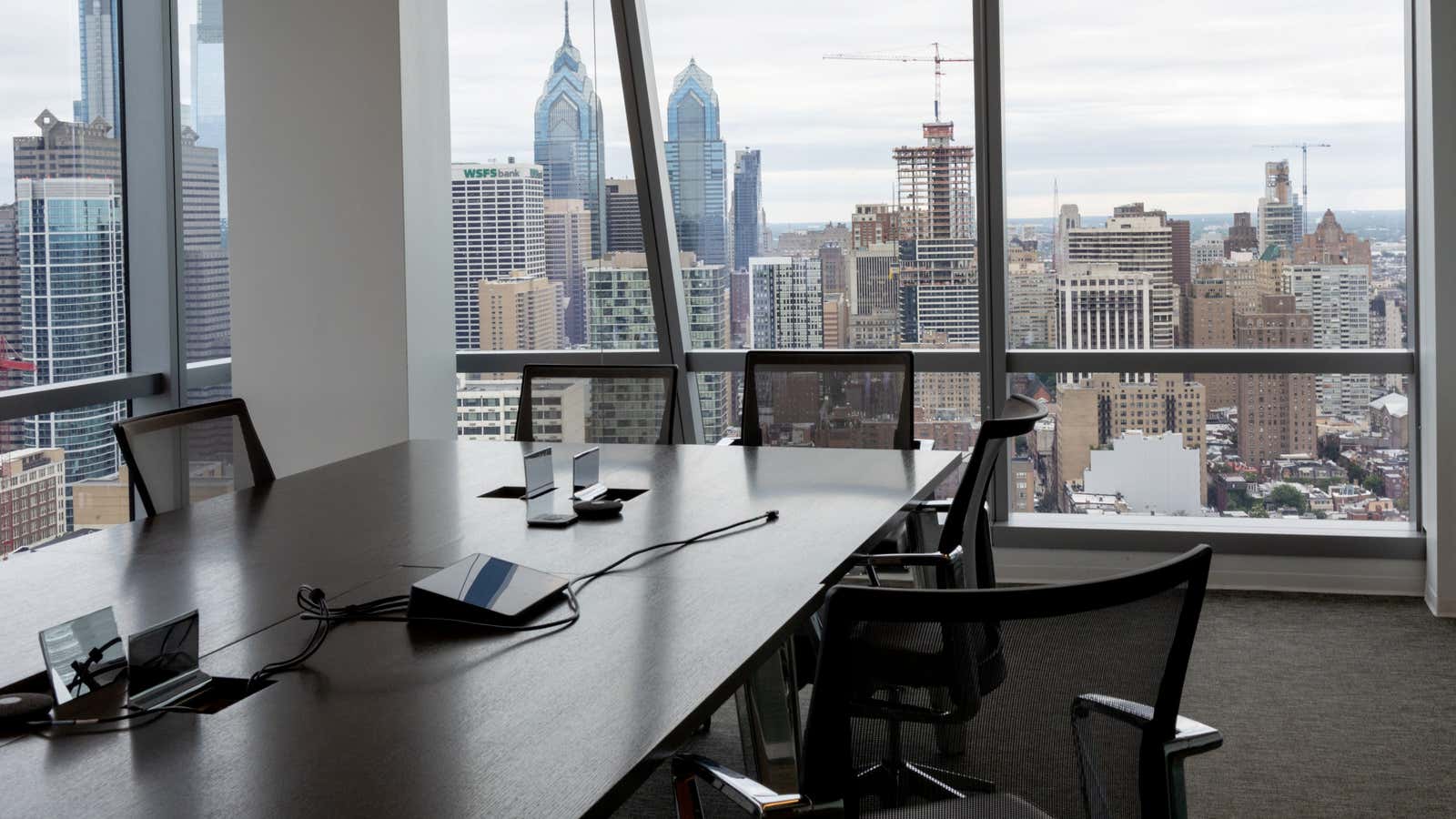To modern workers everywhere,
I aspire to be a warm, generous person. And in my pre-Covid life, the office was a channel through which I got many small opportunities to demonstrate those qualities daily. Waiting for the elevator or by the office microwave, I might have struck up a conversation with a colleague about a project they were working on and suggested a relevant book, or told them how much I enjoyed their recent presentation.
There are still opportunities to be friendly and helpful while working remotely, of course. But it requires making a more conscious effort, and in practice I rarely think to message my co-workers out of the blue. As a result, during the pandemic, I haven’t quite felt like myself.
As offices reopen, I’ve been thinking about how the return to the world of IRL work might be a chance for us to reflect on the kind of people we want to be—to reinvent ourselves, or, as in my case, to put the qualities we pride ourselves on into action.
I finally got a chance to do just that last week, with my first foray back to the office. I stopped by a former teammate’s desk to catch up, and we booked a Zoom call for the next week for a more in-depth chat. I talked to another colleague about what we might do with our respective work sabbaticals, and came away feeling inspired about the possibilities. I got a chance to meet a newly hired colleague, and got a sense of her (great!) personality in ways that wouldn’t be as easily conveyed over Slack.
With Quartz’s openness to hybrid and remote setups, I doubt I’ll be in the office as frequently as I used to be. But heading back to the office was a reminder of what I’ve been missing over the past year: not just my co-workers, but the chance to affirm my identity.—Sarah Todd
Read Sarah’s full article, “Returning to the office is a chance to reinvent your identity” here.
Five things we learned this week
🧑🏽 There’s an easy way to improve diversity in hiring pools. When the chair of a recruiting committee has a minority background, applications from underrepresented minorities surge.
🤖 AI will help us create more caring company cultures. There are three main areas where AI can already enable compassion in the workplace.
🚫 Corporate jargon is not the only language foul in the workplace. There are at least five other types of language that are offensive or non-inclusive.
🇺🇸 A lack of political diversity at companies is bad for innovation. When a CEO opposes the party controlling the White House or Congress, the company cuts back on research spending. That’s just one reason why having more ideological pushback at the top is important.
⛱️ Why vacations feel like they’re over before they even start. Longing for something seems to make it feel shorter.
30-second case study
To better understand why occupations remain segregated according to gender, a pair of researchers at the University of Toronto Rotman School of Management analyzed the real-world cover letters of women who applied for jobs in male-dominated industries. Their work, published in a recent Academy of Management Journal, found that women attempted to ward off gendered expectations by carefully considering their word choices—a common practice, according to a growing body of evidence, the authors write.
The applicants downplayed their gender by using fewer “feminine” words (like sensitive, cooperative, empathetic, and caring), assuming that it would make them look like stronger candidates. They did not use “masculine” words (like competitive, assertive, confident, and entrepreneurial), but instead struck a gender-neutral tone.
The strategy generally backfired. The study showed that women whose cover letters were less feminine-sounding were also less likely to be hired for any job because they weren’t meeting stereotype expectations. Although that might be the predictable outcome when applying for a position in a profession that’s seen as feminine, it ironically also was true when women were seeking “male” jobs.
The takeaway: Studies in social psychology have long demonstrated that women face a double bind in leadership roles. They can choose to be direct and confident and be seen as competent, but a bit nasty; or they can be warm, nurturing, and therefore likable (punctuating their email messages with apologies, emoji, and exclamation points), but considered less effective.
Apparently women face the same catch-22 long before they land a job. (Men in the study who did not meet male expectations were also penalized, but the effects were not as significant.)
The researchers are not advising women to stop masking their gender or turn into pleasant Pollyannas in job applications. Instead, they suggest women just be authentic in their cover letters and ignore conventional advice about carefully managing the impressions they make.
Read more about this research in “What women need to know about writing cover letters” by Lila MacLellan.
Quartz field guide interlude

Memo readers may have a natural interest in ethical investing and how companies are responding to a new generation who have made it a priority. But what do you know about how we got here?
Brief history of ESG investing
1800s: Quakers and Methodists urged business leaders to shun enterprises that supported slavery, as well as companies that profited from vices such as drinking spirits or smoking tobacco
1960s: College students protesting the Vietnam War implored university endowments to stop investing in arms manufacturers
1980s: Environmental disasters such as Three Mile Island and Chernobyl made environmental concerns a top priority for crusading investors
Late 1980s: Organizations from states to corporate boards combed through their pension fund portfolios to weed out companies that did business in apartheid South Africa
2005: The Principles of Responsible Investment, a network of 50 institutional investors, is created (it now has 3,000 members)
Read more in “A guide to ethical investing,” a membership exclusive.
It’s a fact!
Black employees make up roughly 21% of Walmart’s 1.5 million-person workforce, but only 8.4% of people in officer-level roles are Black.
Quartz’s Marc Bain reports that a new survey of 56 Black managers at the company revealed that Black employees feel left out of the company’s self-proclaimed “culture of inclusion.” Read the full story here.
It’s anecdotal!

The pandemic has turned New Yorkers into early-bird diners, at least according to restaurant owners who spoke to The New York Post. Many people who have been working from home all day and don’t have to factor a commute into dinner plans are seemingly ready to get out earlier. “Six pm is the new 8 pm,” Rick Camac, director of operations at Tribeca’s Kitchen, told the Post.
It’s charted!
“There’s a lot of dead air in post-pandemic offices,” writes Quartz reporter Anne Quito in a recent story about making the half-empty spaces more inviting by turning on some ambient music.
A 2017 study suggested that music is better at combating stress and anxiety than anti-anxiety medication, she explains. Background melodies are also believed to boost productivity by taking one’s mind off of rote tasks.
But what should be on your office playlist? Here are the results of a poll by the streaming service Cloud Cover Music.

It’s here!
Sign up now for Need to Know: Tokyo Olympics—your guide to the Games. Our pop-up newsletter features highlights, interesting histories, and surprising discoveries about the competition that couldn’t be stopped by Covid.
Words of wisdom
“A lot of organizations have spent years building a railroad track, with their work as the rail cars. They’ve been humming along, everything’s good, then Covid happens and the rail cars get knocked off and replaced with sailboats. A lot of leaders are saying, ‘Well, sailing is terrible,’ but that’s actually not true. If you replace the railway with a waterway, all of a sudden the sailing isn’t terrible anymore.”
—Darren Murph, head of remote at Gitlab, in conversation with Quartz at Work following the Remote by Gitlab event last month .
ICYMI
Transitional periods naturally prod us to think about our response to stress and the ways in which we build resilience—which makes now a good time to revisit this gem from our archive by former Quartz reporter Natasha Frost.
While attending the Milken Institute’s 2019 Global conference, Natasha signed up for an unusual session that brought strangers in wetsuits together in a hotel pool. The goal: Hold your breath underwater for two minutes. “We don’t often think about kindness when we consider grit. Instead, it’s usually spoken of as a kind of steel-booted, bullying perseverance,” she wrote. But the pool challenge opened her eyes to the value of self-compassion and investing in others when under pressure.
Office tunes

It was impossible not to revisit “My Music At Work,” a classic early aughts song from the Canadian alt-rock band The Tragically Hip, while producing this edition of The Memo.
You got The Memo!
Our best wishes for a breakthrough week. Please send any workplace news, cover letter tips, sailboats run aground, and early-bird dinner recs to [email protected]. Get the most out of Quartz by downloading our app and becoming a member. This week’s edition of The Memo was produced by Lila MacLellan and Heather Landy.
